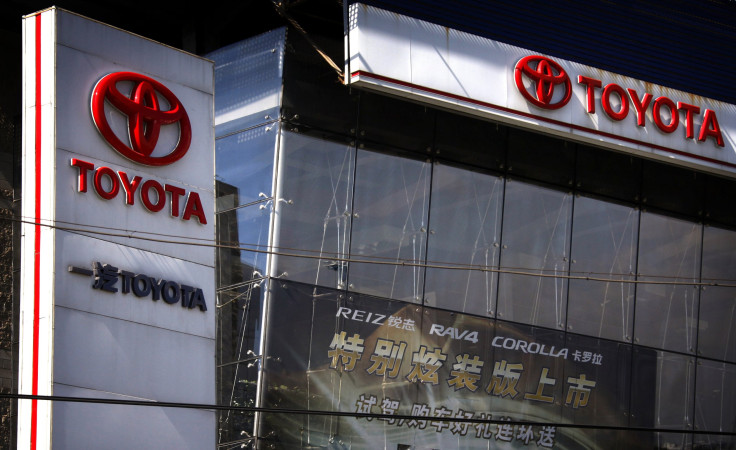China Auto Sales September 2013: Up 21% As Japanese Automakers See Strong Rebound In China Sales A Year After Territorial Dispute Pummeled Sales; Ford Focus Charges Ahead

China’s monthly auto sales figures are out. The world’s largest auto market saw a 21 percent rise in passenger-car and light-truck sales in September to 1.59 million units, the highest volume figure since January’s 1.73 million, led by a rebound of Japanese automakers who saw sales plummet late last year over the Senkaku/Diaoyu islands territorial dispute that led to a consumer backlash against Japanese cars. That backlash appears to have abated.
The Beijing-based China Association of Automobile Manufacturers said Friday 15.9 million vehicles, including buses and trucks, have been sold in the country in the first nine months of the year, putting it in line to top 20 million vehicles sold in 2013.
Japanese automakers -- mainly Nissan Motor Co. Ltd. (TYO:7201), Honda Motor Co. Ltd. (NYSE:HMC) and Toyota Motor Corp. (NYSE:TM) -- saw the biggest rise in year-over-year sales in September. The association didn’t supply volume figures or name the specific Japanese companies, but Nissan said it sold 117,100 vehicles last month, an 83.4 percent hike from 2012 to 2014; Honda said it sold just under 74,000 units, more than doubling its sales over the same period; and Toyota said it sold 72,100 units, a 63 percent increase.
These steep rises reflect the rebound from the tumult of anti-Japanese protests that were taking place in August and September of last year. In other words, last month’s Japanese sales figures are being compared with an anomaly from this time last year when sales plummeted over a geopolitical dispute.
Luxury brands have also appeared to shake off a crackdown on purchases by state officials early this year. Audi, the top-sealing luxury auto brand in China, saw demand jump 28 percent as consumers snatched up the Q3 compact crossover and the Q5 midsize SUV. Meanwhile, both Mercedez-Benz, owned by Germany’s Daimler AG (FRA:DAI), and Bayerische Motoren Werke AG (FRA:BMW) reported 21 percent gains.
Volkswagen Versus General Motors
The two top foreign brands in China are neck and neck in sales so far this year. Germany’s Volkswagen AG (FRA:VOW3) said Friday it has sold 2.36 million vehicles in China in the first nine months of the year. And the U.S.-based General Motors Co. (NYSE:GM) -- a partner of China’s largest automaker, SAIC Motor Corp. Ltd. -- sold 2.31 million units in the country over the same period.
GM has a dozen joint ventures in the country, but its largest is Shanghai GM (with SAIC). It sells under the brand names Chevrolet, Cadillac, Buick and Opel. The Chevrolet Cruze sedan, the Chevrolet Sail compact and the Buick Excelle compact are among the top 10 selling brands in China.
Volkswagen, the first foreign automaker to enter China and also a partner of SAIC, currently holds five of the top 10 selling brands: the Lavida compact, the Passat full-size sedan, the Jetta compact, the Sagitar and the Bora -- the last two are basically slightly different variations of the Jetta sold with different badges.
Ford Making Strides
The Ford Motor Co. (NYSE:F) had the best-selling car in China last month, the Ford Focus, but the model trails behind the VW Lavida for the year. Ford sales jumped 61 percent to 96,111 units last month, largely due to strong demand for the Focus. It launched six new vehicles in China this year, including the Kuga and EcoSport small SUVs, the Explorer full-size SUV and the Mondeo midsize sedan.
Ford, a latecomer to the market, has made significant strides in Asia in general and China in particular.
David L. Schoch, president of Ford Asia Pacific, said this week that the company will need to build more plants in China after completing the current expansion cycle of increasing its number of Asian factories to 24 from 14 by 2015. By 2020, “China would be more than North America and Europe combined [in annual auto sales],” Schoch told reporters in Dearborn, Mich., according to the Detroit Free Press.
© Copyright IBTimes 2024. All rights reserved.












